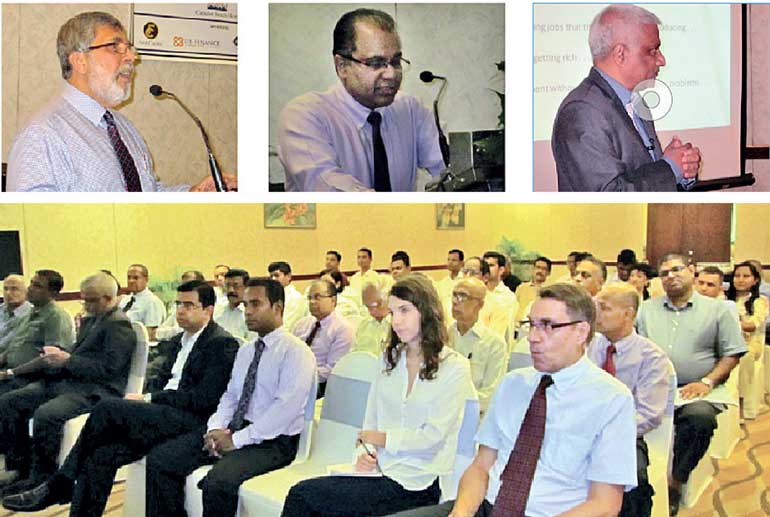Thursday Feb 19, 2026
Thursday Feb 19, 2026
Monday, 27 June 2016 00:00 - - {{hitsCtrl.values.hits}}

Sri Lanka faces several challenges. Among them are the decline in exports as a percentage of GDP and the inability to create the kinds of jobs our young people want. We have difficulty responding to these challenges in a coherent manner because our government lacks resources, partly because it is wasting money on unimportant things. For example, in 2014 it spent Rs. 32 billion covering losses on one incompetently managed state-owned enterprise (SOE). That is more than double the amount spent on supporting close to 1.5 million families through the main welfare program Samurdhi, renamed as Divinaguma.
There is no justification for these massive subsidies. The first-best solution is to privatise certain commercial enterprises currently mismanaged by unaccountable boards and managers. When Certain Companies were partially privatised and professionally managed, it was not a drain on the Treasury. In fact, it contributed to the Treasury.
However, the government appears disinclined to implementthe first-best solution. It proposes a second-best solution, wherein government shares in SOEswill be held by a “Public Business Enterprises Holding Corporation Limited” (PBEH). This solution is modeled on Singapore’s Temasek, a holding company with assets of 266 billion Singapore Dollars.
Even the second-best solution is better than the disastrous status quo. However, it is important that the Temasek solution be fully understood. Piecemeal implementation can yield disappointing outcomes as was shown in Bhutan.
Only purely commercial enterprises should be moved into PBEH. The performance of their professional managers should be governed by contracts which include clear, measurable performance indicators. Since one cannot expect any enterprise to generate ever-increasing profits year after year, it would be necessary to float some of the shares in the stock market and benchmark performance on share value and returns. Not only can Temasek replace underperforming managers, it can even reduce its holdings in poorly performing enterprises. It would be necessary to carefully examine the absorptive capacity of our small stock market.
The real challenge is how to measure the performance of PBEH. Its Board should be held accountable but also be insulated from political interference. Temasek is governed by a professional board, which includes a former World Bank head. But the strongest safeguard appears to be its CEO, Ho Ching, who is both an accomplished professional and a member of Singapore’s first family. Temasek works in Singapore’s Confucian ethos. In our context, PBEH could become another layer of bureaucracy, or worse, an instrument of unaccountable patronage.